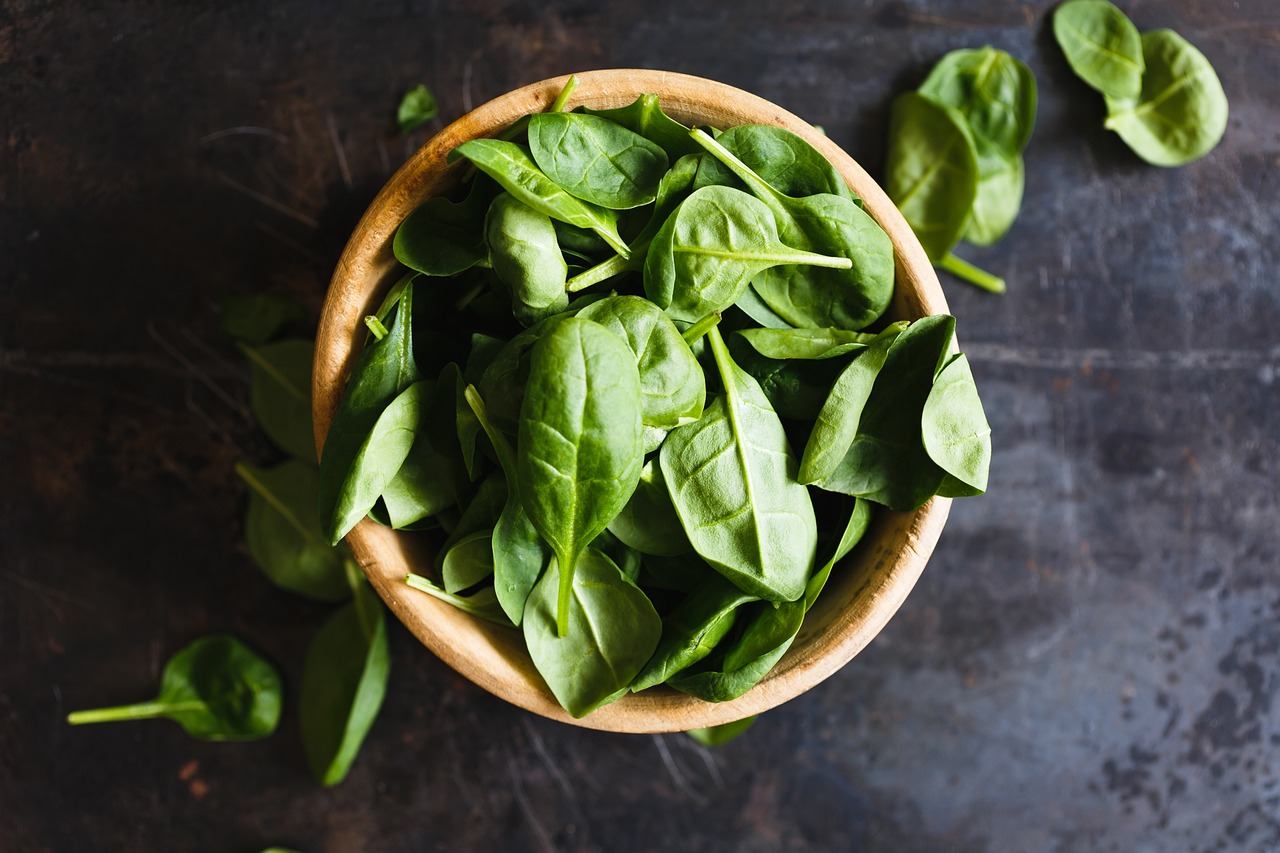nutrition
Holy Basil vs. Basil: Comparison & Health Advantages of Each
On This Page

In this article, we’ll discuss the key differences between these two herbs, how they’re used, and other helpful things to know.
Holy basil and basil are two herbs that are frequently used (and confused!). While they share a similar name and belong to the same plant family, the herbs are different in many ways. In this article, we’ll discuss the key differences between these two herbs, how they’re used, and other helpful things to know.
Introduction to Holy Basil and Basil
While there are some common features between these two types of basil, there are also some important differences. They both belong to the same general plant family, known as Lamiaceae, but which is primarily known as the mint or sage family.
Holy Basil
Holy basil, also known as Tulsi or by its plant designations Ocimum sanctum or Ocimum Tenuiflorum, is an Asian herb that has a mint-like flavor. It is viewed as a sacred herb according to Hindu religious traditions and may be referred to as Sacred Basil.
Holy basil has strongly scented leaves that are green and purple with a tooth-like appearance. The plant has hairy stems. It is native to tropical regions, but is cultivated worldwide for religious and medicinal purposes.
Holy basil contains several phytochemicals and flavonoids, including eugenol, rosmarinic acid, apigenin, luteolin, and Ursolic acid. Many of these have antioxidant properties.
Regular (or “Sweet”) Basil
Regular or sweet basil is also referred to as Genovese basil or by its plant name Ocimum basilicum. It has a spicy-sweet flavor profile that is commonly featured in Italian cooking. It has bright green, round-shaped leaves.
Sweet basil is native to Mediterranean and tropical regions, but is grown around the world.
It is a good source of several minerals when consumed as a food, including calcium, iron, and manganese, as well as vitamin A and carotenoids, vitamin C, and vitamin K. It is also brewed as a tea or taken as an herbal supplement. Sweet basil also contains phytochemicals such as rosmarinic acid, ellagic acid, catechin, and others.
When to use regular basil
1. Healthy sleep support
Sweet basil, when taken as a dietary supplement in capsules, may enhance sleep quality. A triple-blind, randomized clinical trial of 60 postmenopausal people compared 250 mg of sweet basil extract once daily for 1 month to a placebo. The placebo group experienced no changes to their sleep quality scores, but the sweet basil group had noted improvements at 2 weeks, which increased further at the 1-month mark. Larger studies need to be done in more diverse populations, but for the challenge of sleep issues in the context of menopause, sweet basil appears to be promising.
2. Mental wellness support
Animal studies have demonstrated sweet basil’s benefit for stress reduction, but there isn’t research to know if this extends to humans. Sweet basil is often used in Italian and Mediterranean cooking, and research has found that a higher adherence to a Mediterranean-like food plan is associated with more balanced mood and mental wellbeing, better quality of life, and sleep quality. If you want to utilize sweet basil for mental wellness, there’s more evidence for adding it to your recipes versus consuming it as an herbal supplement.
3. Heart health support
While sweet basil is discussed to be supportive for heart health, there are no human studies evaluating this effect. While animal studies on the subject may seem promising, it’s not possible to know whether the benefits truly extend to humans.
When it comes to heart health benefits, eating a diet rich in vegetables and other healthy nutrients is proven—and sweet basil is a great cooking spice to use for a variety of dishes.
4. Natural antioxidants
Sweet basil has natural antioxidant properties that have the potential to make it effective for supporting healthy free radical responses. Most of the research on basil’s effects have been in human cell studies, which means that it’s still not clear if basil behaves within the human body in the same way. However, the potential is there for beneficial mechanisms, but studies are needed in humans to fully understand how it works.
Basil is also sometimes consumed as a microgreen, considered to be rich sources of vitamins, carotenoids, and polyphenols. Consuming sweet basil as a food or spice in conjunction with a nutrient-dense diet is currently the more proven way to gain heart health benefits, including antioxidant nutrients.
5. Digestive health support
Sweet basil is utilized in traditional medicinal approaches, like Ayurveda or Traditional Chinese Medicine, for digestive support. While there are no human clinical trials evaluating sweet basil’s impact on gastrointestinal wellness, generally, herbs and spices used in cooking are thought to have beneficial impacts on digestive function. Cooking with sweet basil and other herbs can also be a way to enhance flavor and enjoyment of healthy meals.
When to use holy basil
1. Support healthy stress response
Tulsi is considered an adaptogenic herb, which means that it has properties that help the body adapt and balance the HPA axis and the body’s stress response. Adaptogens also include herbs like ashwagandha and Rhodiola.
Holy basil may support a healthy stress response. A study of 100 participants, ranging between 16–65 years old, were given either 125 mg of holy basil twice daily or placebo for 8 weeks. The group who received holy basil experienced more improvements in stress perception and sleep challenges, as well as objective measures of stress like salivary cortisol and blood pressure.
Another study with 35 participants, and an average of 38 years old, used 500 mg twice daily to assess the effect of holy basil on occasional anxiety and tension. The study evaluated participants at baseline, 30 days, and 60 days and found that holy basil was impactful for addressing mood-related symptoms and tension, as well as factors like flexibility and attention. Placebo-controlled studies are needed to replicate the results.
In the most well-designed study, 150 adults received either 1200 mg of holy basil or placebo daily for 6 weeks. The randomized, double-blind, placebo-controlled study revealed that in the group who received holy basil, improvements were noted for forgetfulness, exhaustion, sleep issues, and sexual problems, along with an overall 39% reduction in general stress compared to placebo.
2. Support for healthy blood sugar already in a normal range
Blood sugar mechanisms are complex in the body, affected by genetics, age, activity level, diet, and many other factors. Older research that utilized a single-blind, crossover, placebo-controlled design found that holy basil impacted measurements of blood sugar, reducing fasting blood glucose by 17.8% and post-meal levels by 7.3% as measured in the serum, with urine measurements similarly aligned. Because metabolic health is influenced by many things, only your healthcare provider can determine if healthy blood sugar support might be right for you. Larger, more well-designed studies are needed to confirm how holy basil affects metabolic wellness parameters.
3. Healthy immune system support
The immune system has a dynamic network of cells that respond to numerous types of oxidative challenges. Many herbs have been studied for how they affect the immune system, including holy basil. Cell studies have shown that holy basil has an antioxidant activity and can support signaling between types of immune cells. Other cell studies have found specifically that eugenol, one of the bioactive components in holy basil, may be the primary reason why it has potentially beneficial qualities for immune support.
But only studies conducted in humans can truly illuminate how effective a compound may be. In a small study of 22 healthy people, holy basil was compared to placebo in a double-blind, randomized trial. The results indicated that 300 mg of holy basil extract led to statistically significant increases in four types of immune cells after 4 weeks, while the same effects were not noted in the placebo group.
4. Healthy weight and metabolism support
In a randomized, parallel, open-label study to test the concept of holy basil’s impact on metabolic parameters, 30 adults with higher body weight were split into two groups. The first group received 250 mg of holy basil twice daily for 8 weeks, while the second group received no intervention. The group who received holy basil had statistically significant improvements in weight as well as serum measurements associated with metabolic wellness, while the other group did not. Double-blind, placebo-controlled studies are needed to see if the same benefits can be repeated.
The Bottom Line
Both types of basil have the potential to support health, although in different ways. Overall, the evidence for many potential benefits of each type of basil is limited because it was done in cells or animals, not in humans. Basil, and many other herbs, have nutritional benefits when used as food, and can possibly support wellness if taken as an herbal supplement. Because evidence from human studies is limited, it’s important to discuss the benefits of either type of basil with your healthcare provider.



